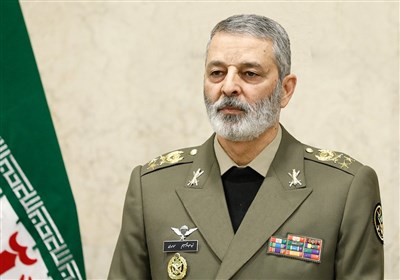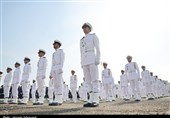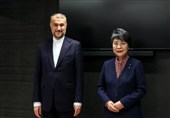US Efforts to Cut Iran Off from Rest of World amid Pandemic Cruel
TEHRAN (Tasnim) – As Iran surpasses half a million cases and more than 27,000 deaths as a result of the COVID-19 crisis, the US administration is adding new sanctions on a country that was already struggling to buy essential medicines.
Last week, the Trump administration sanctioned 18 Iranian banks, which appear to have been the last financial institutions with international ties left untouched by Treasury Department sanctions. The announcement was the latest move in an effort to hermetically seal the Iranian economy off from the rest of the world.
In 2003, when an earthquake killed thousands in the Iranian city of Bam, President George W. Bush set aside years of animosity and sent an airlift of rescuers and medical supplies. He also temporarily eased some restrictions on sending money and goods to the country. “American people care and we’ve got great compassion for human suffering,” Bush told CNN in the aftermath of the quake. “It’s right to take care of people when they hurt.”
This fall, as the COVID-19 death toll continues to climb in Iran — the hardest-hit country in the Middle East — the Trump administration has shown little mercy. The US government has voiced its opposition to Iran’s request, still unfulfilled, for a $5 billion loan from the International Monetary Fund to help combat the coronavirus pandemic.
Under the Trump administration, being Iranian is crime enough. The list of new financial pariahs includes Bank Maskan, which specializes in mortgages, and Bank Keshavarzi Iran, which lends to farmers. This sweepingly broad application of sanctions amounts to collective punishment for tens of millions of innocent Iranians, wrote the New York Times Editorial Board.
Barbara Slavin, director of the Future of Iran Initiative at the Atlantic Council, calls the American “maximum pressure” campaign against Iran “sadism masquerading as foreign policy.”
In the past, sanctions on Iranian banks were part of a broader strategy to get Iran to agree to limits on its nuclear program, undertaken with the support of American allies in Europe, as well as Russia and China. But the Trump administration walked away from the deal those sanctions produced. Ever since, the United States has been virtually alone on the United Nations Security Council in trying to ratchet up pressure on Iran. The unilateral and extraterritorial nature of the sanctions — which threaten to cut off not only Iran but also any company in the world that does business with Iran — irks America’s closest allies.
The new sanctions against these 18 banks are particularly cruel during a pandemic. Trump administration officials insist the sanctions, which will take effect in December, don’t apply to food and medicine. They also say they have taken pains to provide waivers to companies that want to sell needed supplies to the country. But the process of getting waivers approved is too cumbersome and time-consuming to meet health needs during a pandemic. Even if companies get waivers to sell needed medical supplies to Iran, Iran would still struggle to pay for them. The country lacks hard currency because the Trump administration has tried to stop other countries from buying Iranian products, especially oil, and because American banking sanctions make it difficult for Iran to touch the export revenue it earns.
There is little doubt that this policy has crippled Iran’s economy and impoverished its people with runaway inflation. But it has not achieved the ultimate goal of forcing the Iranian government to capitulate to Washington. The more the United States throws its weight around, the more appetite there will be around the world for establishing alternative financial mechanisms that will ultimately deprive Washington of its global clout. American officials would be wiser to stop piling sanctions on Iran during this pandemic.






